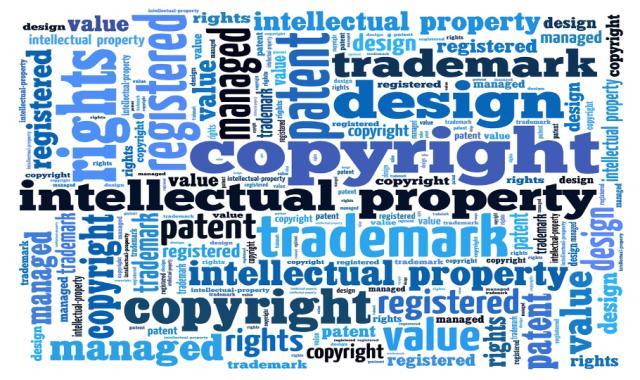
Companies go the extra mile to protect IP assets. (Source: Shutterstock.com)
Intellectual property (IP) is the life blood of service companies and oil and gas producers.
James Trussell, associate general counsel and chief IP counsel for BP Americas, addressed the need for a fluid IP strategy at the May 1 OTC panel “Active Arena: Global Intellectual Property Strategy.”
“If you’re going to invest heavily in technology and you don’t protect it with IP, you’re doing R&D for your competitors,” Trussell said. “They’ll be fast followers.”
Still, software can be stolen without the creators ever knowing—so why share it? Countries cheat patent holders or, in the case of China, require foreign entrants to share their technology. How much you share depends on your need for the business.
Even trademarks that aren’t sufficiently unique or capricious are at risk. Sand tolerant pump may accurately describe a product, but it should be called “something fanciful and arbitrary,” said Bill Imwalle, associate general counsel for technology at Weatherford International.
“The competition to sell goods and services in the oil and gas business is very stiff,” he added. “Smart scientist engineers at different service companies can come up with similar ideas. It’s a race,” he said. “The best practice is to first file [a patent] before disclosing your new idea to the customer.”
However, the protection of ideas— particularly those created in the digital realm—suffers from a framework of patent laws that is 50 years old, Trussell said. IP continues to move toward more digital solutions with the result that leading-edge technologies brush up against patent laws that are far behind. Rulings from the U.S. Supreme Court also have dealt setbacks to IP.
“We all benefit from predictability,” he said. Trussell serves as a board member of the Intellectual Property Owners Association, which advocates for stronger patent laws.
Even technological advances protected by patents can be difficult to police, Imwalle said.
“You might decide, ‘let’s keep that as a trade secret’ because we won’t know whose infringing out there if we go out and teach the world how to practice this technology,” he said.
Trade secrets—such as the formula for Coca-Cola— don’t expire so long as the owner takes reasonable steps to protect them and they afford the owner a commercial advantage.
“A trade secret can last forever provided you keep it secret,” he said.
BP doesn’t always use its patents and secrets to bring lawsuits or earn royalty agreements. In one case study he presented, Trussell illustrated how BP created new seismic technology that required building new hardware. Teaming up with a services company could allow BP to negotiate early access, a royalty or discounted access to services later.
BP used the same technology to negotiate with a national oil company, turning its research into a three-way partnership.
“Protecting IP early allows you to come to the table with more leverage,” he said.
Still, in some cases OTC panelists acknowledged that sharing technology in particular countries means forfeiting control of it.
Trussell said he was pleasantly surprised by his time in China a decade ago.
“It wasn’t as bad as I thought it would be. That’s not a high hurdle,” he said. However, he was able to win patent suits and actually put counterfeiters in jail.
China may also become more rigorous in patent protection now that its companies have progressed in their technology.
Nevertheless, “what you find in China is it’s the more systemic issues you’re reading in the headlines today,” he said.
To do business in the country requires entering a joint venture (JV), which in turn requires teaching the domestic company the technology. “Over time,” he said, “you have to assume any technology you brought into the JV is going to become public.”
Jose Gutierrez, director of technology and innovation at Transocean Inc., said the company no longer tries to protect itself in some countries.
“Certainly there are some countries where we have decided, recently, that we don’t bother any more. We don’t pay maintenance fees anymore.”
He said infringement cases are difficult to prosecute and defend, and registration fees cost the company money.
The company instead files patents and other legal protections where it does business and where original equipment manufacturers relevant to its strategy are based.
“We rationalize it, like a portfolio,” he said.
Recommended Reading
Tech Trends: AI Increasing Data Center Demand for Energy
2024-04-16 - In this month’s Tech Trends, new technologies equipped with artificial intelligence take the forefront, as they assist with safety and seismic fault detection. Also, independent contractor Stena Drilling begins upgrades for their Evolution drillship.
Tech Trends: Safety, Speed, Savings: Automation is Transforming Drilling
2024-03-26 - Drilling is getting smarter through automation, delivering efficiency, consistency and reliability.
Axis Energy Deploys Fully Electric Well Service Rig
2024-03-13 - Axis Energy Services’ EPIC RIG has the ability to run on grid power for reduced emissions and increased fuel flexibility.
AI Advancing Underwater, Reducing Human Risk
2024-03-25 - Experts at CERAWeek by S&P Global detail the changes AI has made in the subsea robotics space while reducing the amount of human effort and safety hazards offshore.
Lift-off: How AI is Boosting Field and Employee Productivity
2024-04-12 - From data extraction to well optimization, the oil and gas industry embraces AI.






